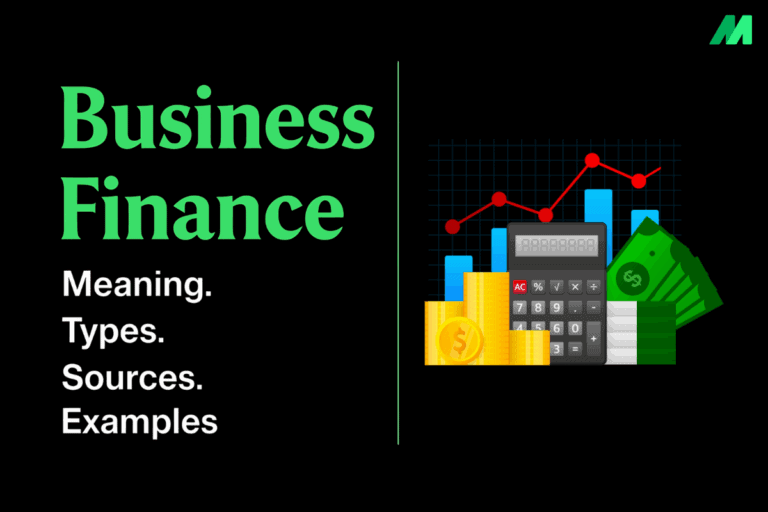Starting a business sounds like a vibe until you realize it’s not just about having a cool logo and an Instagram handle. Whether you’re launching a cloud kitchen, a tech startup, or a handmade soap empire, there are a few non-negotiables you need to figure out before you dive in.
So, if you’re dreaming of being the next Shark Tank success story (minus the awkward pitch), here are 10 basic but boss-level factors every entrepreneur should lock in before going live. Let’s go!
1. Pick the Right Line of Business
First things first: What are you even selling, bro?
Choosing the right line of business is like choosing your Hogwarts house; it defines your journey. Your idea should solve a real problem, have market demand, and ideally, be something you’re passionate about (because burnout is real).
– Love pets? Pet grooming or organic treats.
– Obsessed with skincare? Start a clean beauty brand.
– Can’t stop talking about finance? Hello, fintech.
Hot tip: Don’t just chase trends. Build something that solves a real problem and has staying power.
2. Decide the Size of Your Dream (for Now)
Are you starting small and scrappy or going big with investor backing
– Small scale = lower risk, more control.
– Large scale = more impact, but more complexity.
Your decision depends on your budget, market research, and how much chaos you’re ready to handle. Start where you are, use what you have, and scale smart.
3. Choose the Right Ownership Structure
Sole proprietorship? Partnership? Private limited company? Your business structure affects your taxes, liability, and how much paperwork you’ll cry over.
– Solo founder? Sole proprietorship or OPC.
– With a buddy? Partnership or LLP.
– Going big? Private Limited is your jam.
TL:DR: Talk to a CA before you accidentally become your legal nightmare
4. Location, Location, Location
Even in the age of remote work and online stores, where you operate matters.
– Retail store? Footfall is everything.
– Online biz? Server speed and delivery zones matter.
– Hybrid? Pick a place that supports both.
Also, check local laws, taxes, and whether your dream office is next to a chai tapri (bonus points if yes, because you will need it 😉).
5. Secure the Bag (aka Funding)
No money, no honey 🤑 (or inventory, or marketing, or salaries). Figure out how much you need and where it’s coming from.
– Bootstrapping = using your savings.
– Loans = banks or NBFCs.
– Investors = angels, VCs, or crowdfunding.
Budget for the boring stuff too, licenses, insurance, and that one unexpected expense that always shows up like a plot twist.
6. Get Your Physical Facilities in Order
Whether it’s a cozy home office or a full-blown warehouse, your business needs a physical (or digital) space to operate.
– Retail? You need shelves, counters, and vibes.
– Manufacturing? Think machines, storage, and safety.
– Online? A laptop and good Wi-Fi might do.
Don’t overspend on aesthetics before you’ve nailed the basics.
7. Plan Your Layout Like a Pro
This one’s for the brick-and-mortar folks. A smart layout = better workflow = happier customers and employees.
– Restaurants need efficient kitchen-to-table flow.
– Warehouses need logical inventory zones.
– Offices need space for both focus and collaboration.
Don’t put the printer in the bathroom.
8. Build a Rockstar Team
You can’t do it all alone (unless you’re a robot, in which case, hi 🤖).
Hire people who:
– Believe in your vision
– Bring skills you don’t have
– Can handle chaos with a smile
Culture > CVs. A committed team beats a fancy degree any day.
9. Don’t Sleep on Tax Planning
Taxes are like that one clingy ex; you can’t ignore them. Plan ahead to avoid nasty surprises.
– Register for GST if needed
– Understand TDS, income tax, and compliance
– Hire a good accountant (seriously, they’re worth it)
Pro tip: Keep your personal and business finances separate. Your future self will thank you.
10. Launch Like You Mean It
You’ve done the prep, now it’s time to go live. But don’t just open shop and hope for the best.
– Create buzz on social media
– Offer launch discounts or freebies
– Collect feedback and iterate fast
Remember: Done is better than perfect. Launch, learn, and level up.
Final Thoughts: Start Smart, Stay Sane
Starting a business is like raising a baby; it’s messy, unpredictable, and incredibly rewarding. These 10 factors won’t guarantee success, but they’ll definitely set you up for fewer facepalms and more fist bumps.
So whether you’re building a tech startup, a bakery, or a handmade soap empire, plan well, stay curious, and don’t forget to breathe.
And hey, if you mess up? That’s just part of the founder glow-up.




